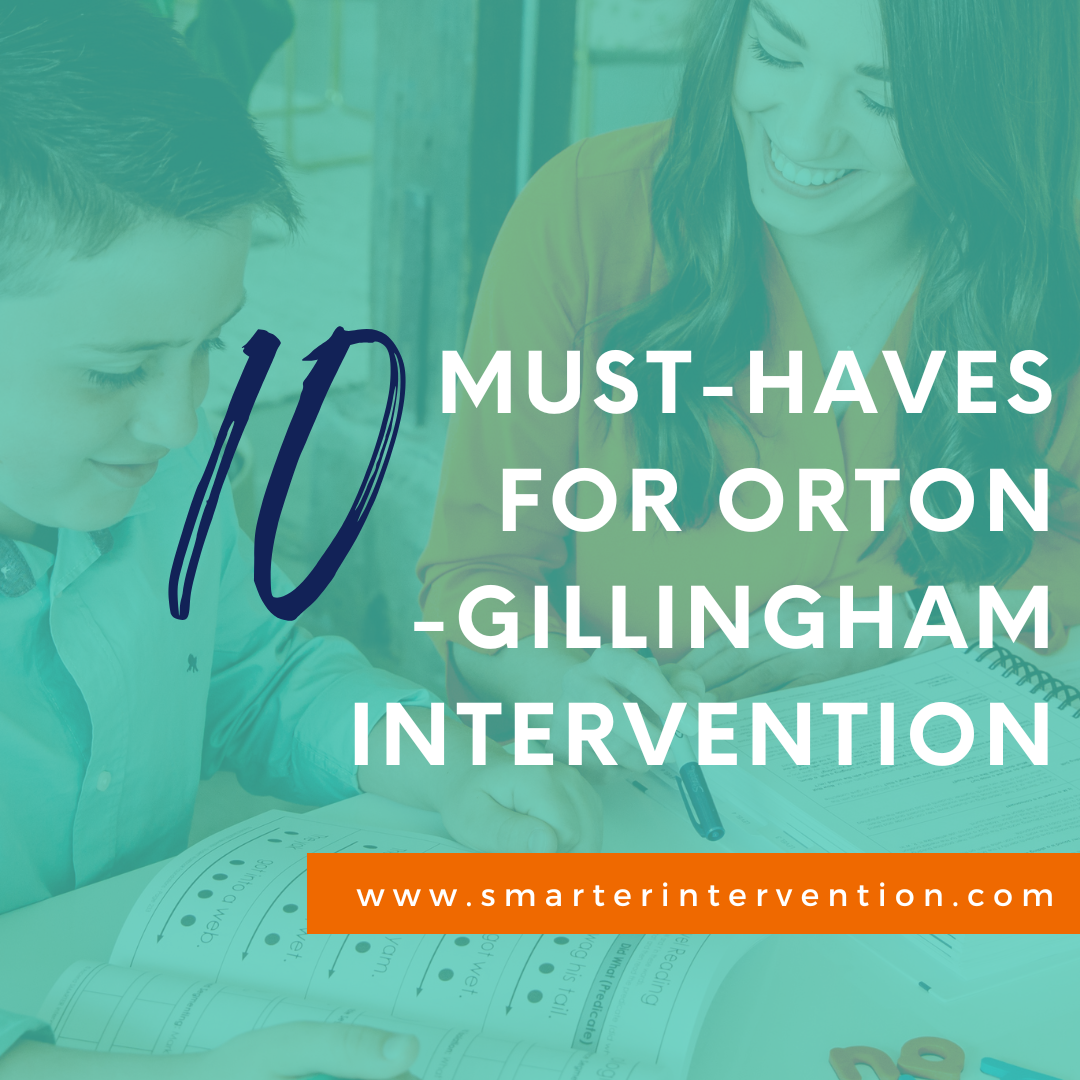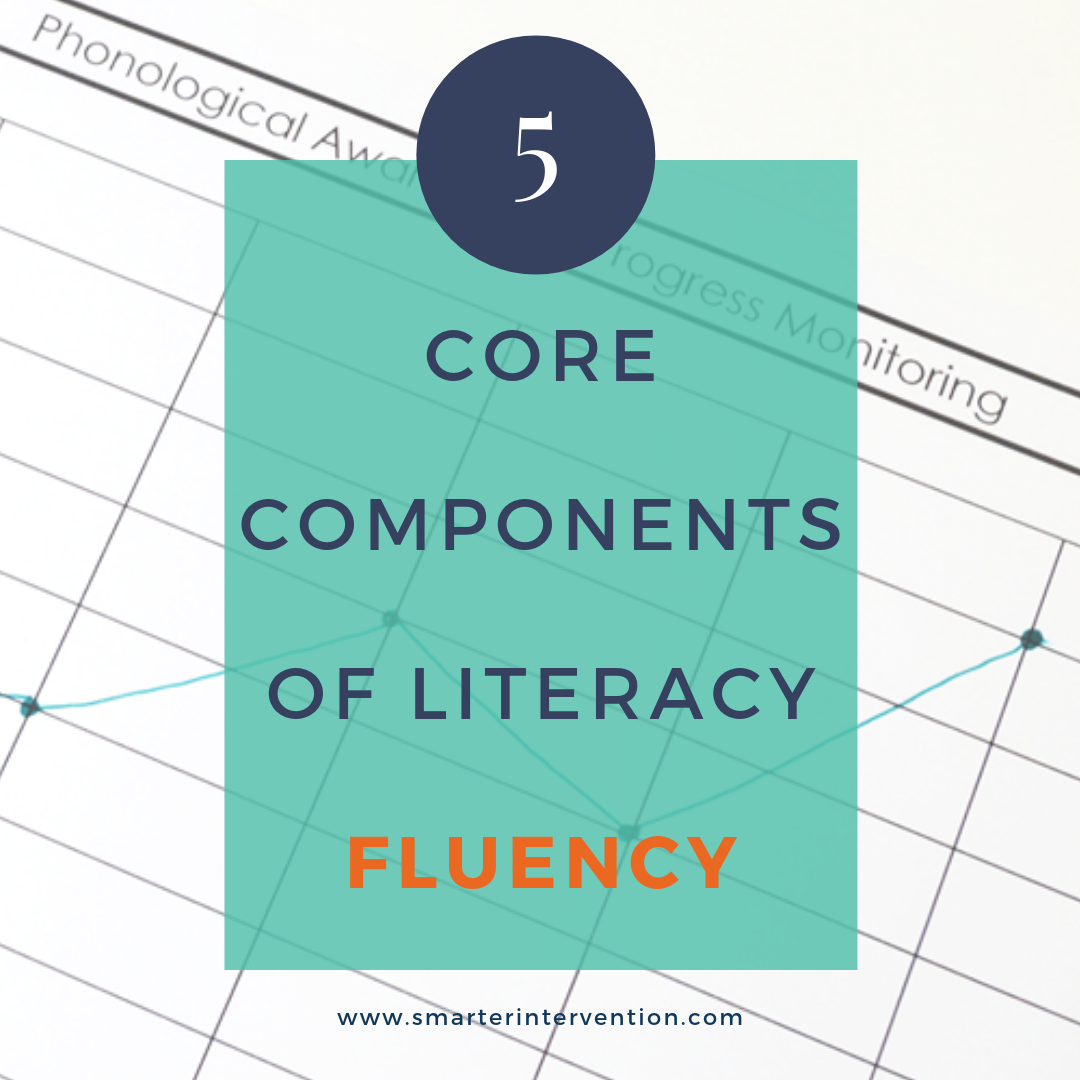Science-based literacy resources and articles
for families, educators and schools
Search by Category:
Categories
- Advocacy
- Authentic Literature
- Business
- Comprehension
- Data Tracking
- Differentiation
- Dyslexia
- Evaluation and Assessment
- Executive Functioning
- Games & Activities
- Helping My Child At Home
- How To
- IEP/504 Plan
- Lesson Planning
- Math
- Online Intervention
- Organization
- Parents
- Phonics
- Phonological Awareness
- Reading Comprehension
- Reading Fluency
- Research
- SLP
- Spelling
- Vocabulary
- Writing
10 Must Haves for Orton-Gillingham Intervention
So I don't know about all of you, but when I started out delivering OG intervention I was trying to figure what supplies and materials I absolutely needed for my classroom and small group intervention. I knew I would need writing materials, reading supplies, games, activities, word lists, the list went on and on. We’ve put together a list of Orton-Gillingham necessities to help make your life a little easier!
The One Thing You Can't Leave Out in Reading Intervention
We’ve been at this for a while now! We’ve worked with hundreds of struggling students in a variety of different settings and one of the most important things we’ve learned is that students DO NOT struggle with reading for the same reasons!
And this is SO important to recognize, because if we don’t recognize this, then we try to support struggling readers using all the same strategies, and the bottom line is that just doesn’t work. For many reasons, but most importantly because in order to support ALL struggling readers, we need to know WHY they’re struggling to read!
5 Core Components of Reading - Fluency
Reading fluency is really important however, we need to be careful not to over-emphasize its importance as one of the core components of literacy. I say this because Reading Fluency is one of the most common goals you will see created for struggling students.
How to Teach the oa/oe Spelling Rule
Vowel teams can be tricky for students, but we have found that teaching them in this way has made a massive difference. Keep reading for ideas for teaching the OA/OE vowel teams!
Consonant LE Syllables - The Reading and Spelling Rules No One Ever Taught You
Here we are with our last syllable type! If you’ve been with us since the beginning of this series you’re all caught up on the crazy reading and spelling rules you may have never heard of - we certainly hadn’t. If you missed learning about all the spelling rules with the other syllable types - go back and check them out!
Open Syllables - The Reading and Spelling Rules That Nobody Taught You
Welcome to week 4 in our series of The Reading & Spelling Rules That Nobody Taught You. In this post, we are going to talk about the fourth syllable type we teach to our students, Open Syllables.
The Open Syllable is the opposite of a Closed Syllable. In an open syllable, you have a vowel left alone at the end of the syllable. Our students like to remember that when nothing is behind the vowel, it can go for a looooong run and say its loooooong sound.
R-Controlled Syllables - The Reading and Spelling Rules That Nobody Taught You
So we’ve been talking all about the reading and spelling rules that were brand new to us when we began to learn about Structured Literacy and the “science” behind the English language. Today, we are going to talk a little about the “Bossy-R” or the R-controlled syllable type. This one is a challenge!!!
Is Ear Reading Really a Thing?
A hallmark of dyslexia is an inconsistency between a child’s reading level and oral language level. Often, dyslexic students are highly verbal; talkative, inquisitive, articulate, and have amazing vocabularies!
One of my all-time favorite students who happened to be dyslexic had the most amazing vocabulary as a young student, he still does today! He would hear a new word used in the context of a book or adult conversation and immediately add it to his repertoire.
Why Can't My Child Follow Directions?
Parents and teachers often mention that it is hard for their dyslexic child or student to follow directions. There are many possible reasons for this and causes can overlap.
The most common reason could be a weakness in one or more learning micro-skills.
Micro-skills are the foundation of learning. We tend to think of intelligence as one specific thing.










